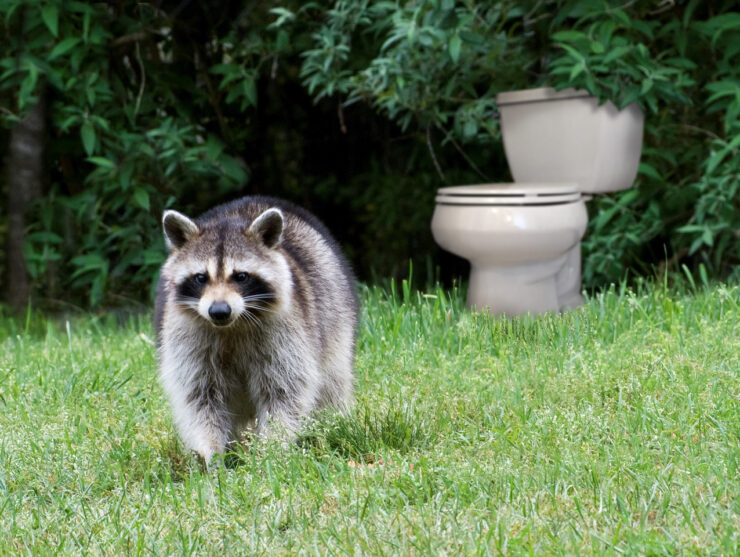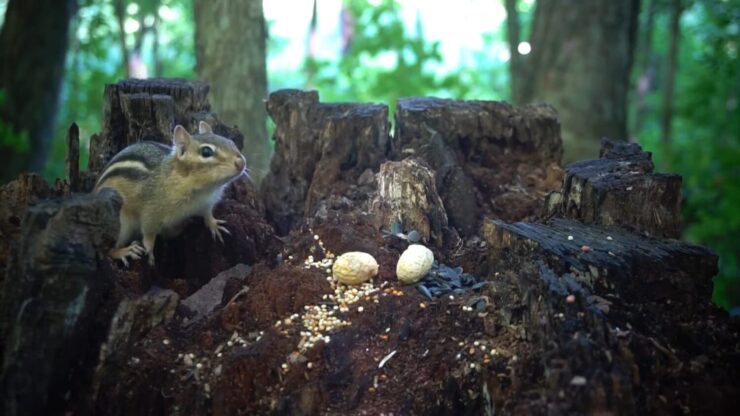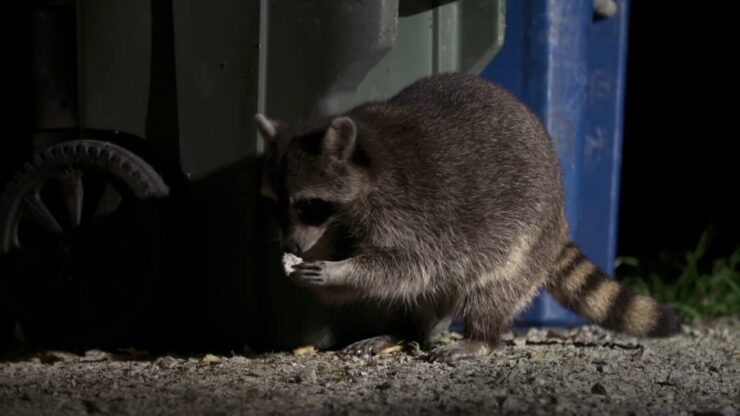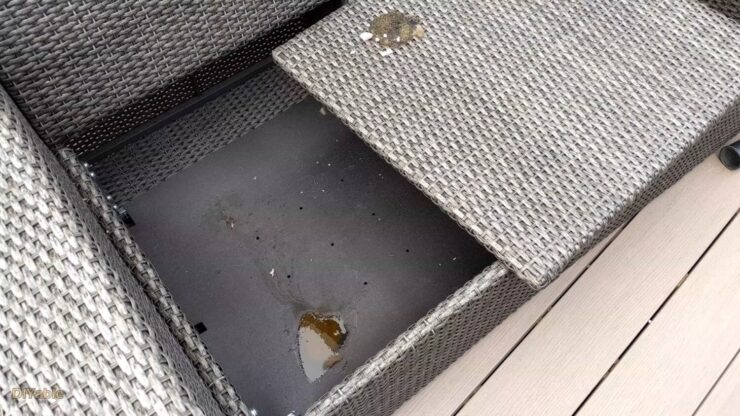Here’s a fact you might not know, and probably, actually, don’t want to know: raccoons like to defecate communally. Yep, that’s right, they like to poop as a group, which is fine, I suppose, until the place they decide to call their toilet is already your front yard.
Gross? Totally. But that is what happened at our house this summer, and I want to tell you the story, partly because it’s disgusting and bizarre, but also because maybe you’re like me and you think it’s fun to learn interesting stuff about other living creatures.
If so, stay tuned. If not, now is your chance to RUN AWAY and read our article on how to grow perfect tomatoes.
Here is the thing: I love wildlife to the point where I know I drive some people mad when I’m all, “Oh, calm down. It’s just a few gopher holes and, no, I won’t tell you how to kill them.” Or, “Yes, squirrels and chipmunks do damage some plants and take bites out of tomatoes. But they’re cute and the outdoors belongs to them as much or more than it does to us. So, no, I won’t tell you how to kill them.”
This live-and-let-live mindset is plain old good karma to my husband, Mike, and me. So when a family of raccoons started visiting our yard most nights this summer, we watched in wonder as they emerged from the sewer (Linden Hills’ sewers seem to be filled with raccoons) and trundled in a line down the path to the huge oak tree near our front door.
Up the tree, they would go, and then they’d stare silently down at us for a while before getting bored — or maybe comfortable — with our wine-drinking and card playing or whatever.
Pretty soon a couple of them would scooch over to the bird feeders and start shoveling food into their mouths with both paws. Learn more about the raccoon’s diet and habits. If you know how they think, you can get rid of them easier!
We noticed right away that, unlike squirrels, who behave like maniacs when they have to share food, the raccoons were very polite to each other, even go so far as to move out of the way so that somebody else could get closer to the good stuff.
All of that snacking must have left the coons feeling parched because every morning, one of the two water bowls we leave out for thirsty critters was always empty. The other, smaller bowl was mostly empty too. But that bowl was always filled with mud, sticks, and a bit of bird food or berries.
Curious, I looked it up and learned that raccoons often dunk their food in water before they eat it. Scientists used to think that’s because they were washing their food, but further study revealed that raccoons dunk things in water to make their paws more sensitive to touch. Why? I’m so glad you asked.
You see, raccoons don’t have the best vision, which is partly why you often see them tapping their paws on the ground rather than just looking right at stuff. Anyway, what raccoons do have is the same nerve groupings in their forepaws as primates, including humans. Getting their hands wet, scientists have found, increases nerve responsiveness, amping up their sense of touch so they can better understand important stuff about whatever they are about to stick into their mouths.
Freak out and scream, “RABIES!” if you want. But the truth is, and you can look this up, most raccoons do not have rabies and even if they do, transmission to people is extremely rare. Our raccoon family showed no signs of aggression, and Mike and I really enjoyed having them in our lives.
The one worry for us was our dog, Lily, who thinks all creatures want to play with her. So we were careful not to let her out after dark. If she just had to go, we went with her, and everything was fine.
Well, everything was fine until the pooping started.
I was filling the water dishes one day when I noticed a neat pile of really dark little turds. At first, I thought they might be from a cat because half the neighborhood lets their cats live outside (do not get me started on that topic). But this poo was black, like charcoal, and oddly tube-shaped. I took a picture, which I chose not to share with you. You’re welcome.
I looked it up and sure enough — raccoon poo. We weren’t thrilled but figured, hey, everybody has to go sometime, and threw it away. (Yes we know raccoons can be infected with round worms. We wore gloves.)
A couple of weeks passed and there was more poo, only this time there were three piles instead of one. Adding to the grossness was a huge mound of barfed-up berries, which seemed to have come back up whole, so I guess they didn’t agree with somebody’s tummy.
After that, things got worse fast and we were waking up to five, six, even seven piles of poo (some from coons who clearly needed to see a gastroenterologist), as well as an increasing amount of barf. So now our yard was not only a toilet, but it was also a vomitorium. AWESOME.
Again, I turned to the Internet for answers, and that’s when I found out that once raccoons find a lovely place that feels safe and comfortable, they turn it into their own personal group toilet. I can sort of see that, I guess. But for a lot of reasons, Mike and I don’t want to muck out our little friends’ crapper and vomitorium every day.
So, though we were sad to have to do it, we stopped filling the bird feeders, took away the water dishes, and sprinkled fox urine granules all over the place, which is supposed to scare critters away. I can tell you this; the stench of fox urine has scared us away from our front porch.
We’re still dealing with some poop and barf, though less often. So, yeah, lesson learned. Now if we could just figure out a way to install an actual outdoor toilet that they could use.
















